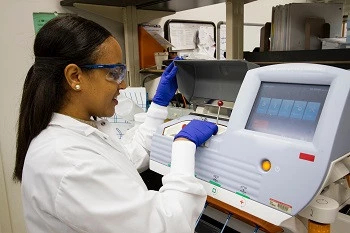Steps for a successful merger and acquisition in pharma
Scientific due diligence is key to pharma mergers and acquisitions according to the Global Managing Director for Pharmaceuticals and Dietary Supplements Consulting at NSF
Add bookmark
Lynne Byers, Global Managing Director for Pharmaceuticals and Dietary Supplements Consulting at NSF, explains the necessary steps for successful mergers and acquisitions in the pharmaceutical sector.
In 2022, the predicted flurry of mergers and acquisitions (M&A) in the pharmaceutical sector has yet to materialize, however there were some significant developments. M&As are an integral part of the lifecycle of almost every pharma organization, whether it is being acquired or orchestrating deals to drive growth and innovation to protect a product’s pipeline. While M&A can shore up and strengthen a company’s portfolio, it can also be an incredibly complex and technical process and if mistakes are made, an extremely costly one.
Accurate valuations are the crux of any negotiation. While balance sheets and financial performance are critical factors in valuation, successful pharma M&As ultimately rely on full scientific due diligence and assessing the critical foundations of manufacturing processes, quality and regulatory compliance. This is where independent and trusted scientific advisors can play a pivotal role, especially for small and medium-sized businesses (SMBs), which are the most exposed to risk.
Acquisitions of innovative and emerging companies can happen at a feverish pace. While companies should never rush into an agreement, often time is not on their side, especially for on-site inspections. Companies may only have a few days to complete these, so they need to have the right team available to quickly identify the risks and evaluate how much it will cost to mitigate them.
The importance of Good Manufacturing Practice compliance
One of the most common shortfalls encountered in due diligence inspections is Good Manufacturing Practice (GMP) shortcomings. The pressures exerted on pharma companies during the pandemic forced some of them to make risk-based decisions based on the resources available at the time rather than quality assurance.
With attention and resources focused elsewhere during the pandemic and a backlog of on-site inspections by the US’ Food and Drug Administration, the European Medicines Agency and the UK’s Medicines and Healthcare Products Regulatory Agency, many facilities may have slipped into a state of non-compliance. So, what can we do to insulate against the risk of acquiring a non-GMP-compliant company?
Firstly, when conducting any site inspection for a potential acquisition, businesses should focus on two key areas: the standard of the facilities and the pharmaceutical quality system. Regarding the standard of the facilities, do they meet current expectations, or will investment be required to bring them up to current standards? As for the second key area, is the pharmaceutical quality system operational and effective?
Reviewing key documents such as minutes of management reviews and quality metrics can help to quickly assess a company’s approach to quality and compliance and the current level of control. It will also give an insight into its quality culture and can help assess the compatibility with the potential purchaser.
Reviewing data and integration strategies
Any change of product ownership can lead to a review of registered data, for example during the variation process. There should be a careful review of the currency of the information supporting product marketing authorizations. Standards change and the expectation will be that current regulatory expectations are met. During due diligence, companies must assess the data supporting the submission, such as the validation data, up-to-date stability data and nitrosamine assessments.
Much as author Simon Sinek said, mergers are like marriages, and you would not marry someone for their operational efficiencies – the bringing together of two companies needs to complement each other’s cultures and identities. But remember, whole infrastructures, such as IT, will need to be integrated. This underlines the importance of an integration strategy, not only to ensure the new company marries up to yours but also to ensure you keep key people in the acquired company.
Having the right team is vital for M&As
Over the last several years, retaining and attracting the right talent has been a challenge felt by many in the pharma industry. Talent shortages have been compounded by the specialist nature of roles and the growth and diversification of biopharma, which now requires an increasingly sophisticated and skilled workforce. Any uncertainty felt by the target company would signal risk to its employees and jeopardise talent retention.
With a limited amount of time for adjustments and a board asking for insights, having the right team working within a company is of paramount importance. Comprehensive technical due diligence mitigates any undue risks when an investment is being made or an acquisition is being considered.
While big pharma tends to have dedicated in-house teams comprised of ex-regulators, lawyers and other specialists at their disposal, this is often different for SMBs. With only a few days on-site, these businesses will need to employ specialists who can quickly identify any risks through rigorous technical, regulatory and scientific assessment and who are experts in regulatory, GMP compliance and quality systems.
The role of the trusted scientific advisor provided by independent companies such as NSF is pivotal to the successful conclusion of any deal. They can help navigate the many pitfalls of M&A in this sector, with teams comprised of ex-FDA and MHRA inspectors and industry experts who can provide of mind about how regulatory bodies might look at their products or compliance issues and help ensure accuracy in valuations and negotiations.
Quick links
- Seven steps to ensure you are GDP-inspection ready
- Why change management is necessary in the pharmaceutical industry
- Group class action: An emerging legal risk for pharma businesses
Get exclusive access to member-only articles, reports, videos, interviews, webinars and other premium content from industry experts and thought leaders by signing up to Pharma IQ here.






















